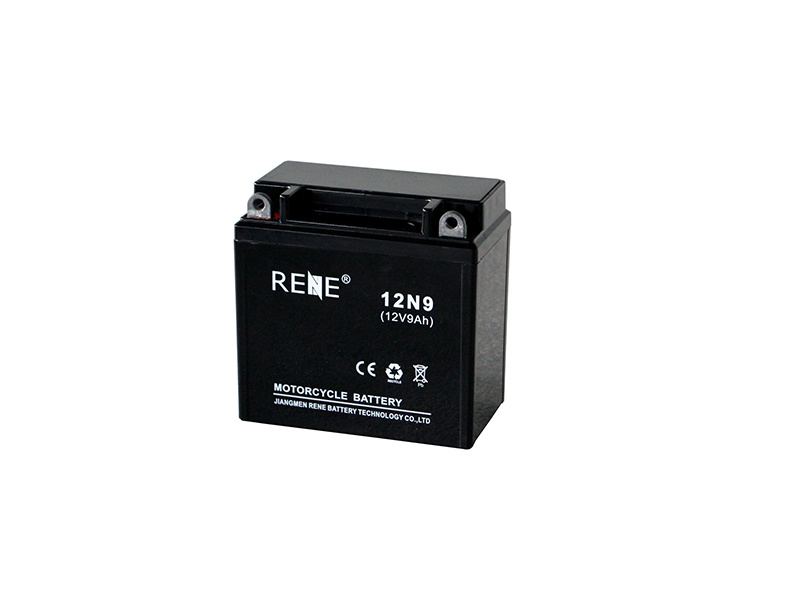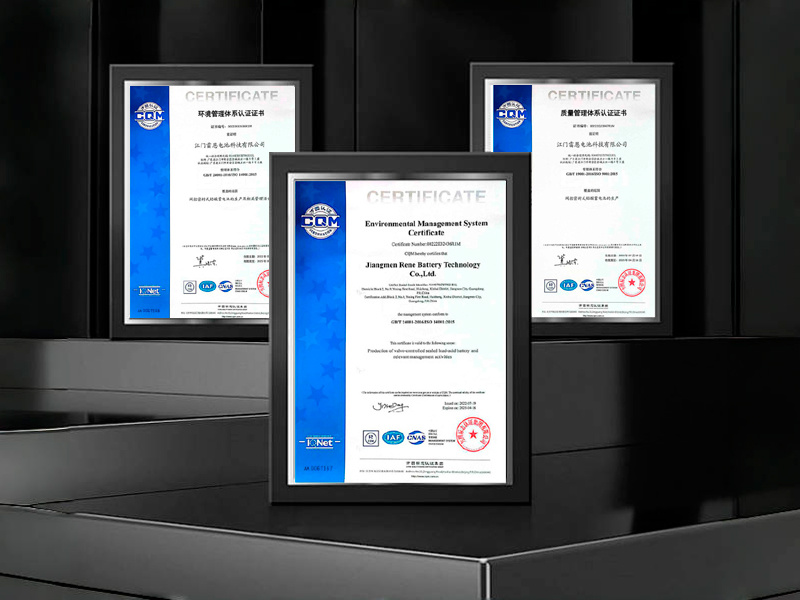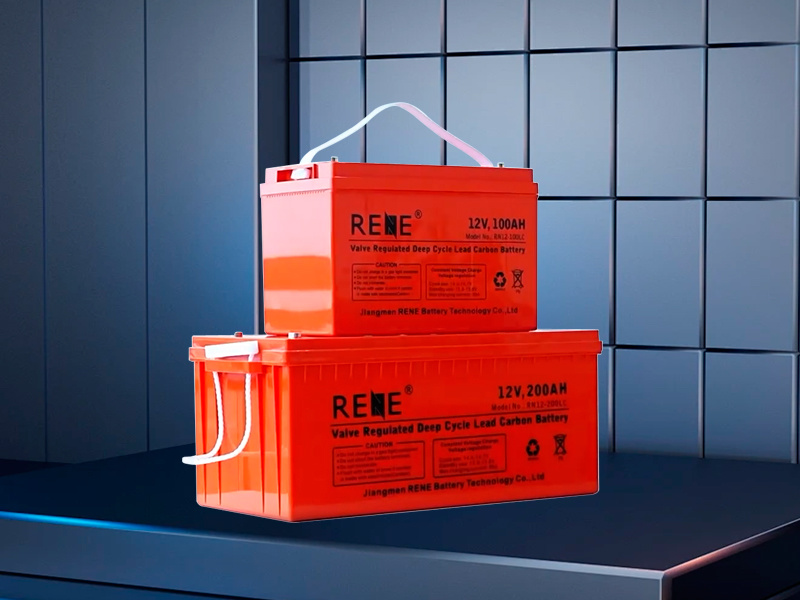Jiangmen Rene Battery Technology Co., Ltd.
Understanding the Lifespan of Your Solar UPS Communication Battery: Maximizing Efficiency and Longevity
2025-07-14
Understanding the Lifespan of Your Solar UPS Communication Battery The solar UPS communication battery plays a critical role in ensuring uninterrupted power supply and efficient communication in renewable energy systems. Understanding the lifespan of these batteries is vital for optimal performance and reliability. In this article, we will explore the factors impacting the lifespan of solar UPS co

Understanding the Lifespan of Your Solar UPS Communication Battery
The solar UPS communication battery plays a critical role in ensuring uninterrupted power supply and efficient communication in renewable energy systems. Understanding the lifespan of these batteries is vital for optimal performance and reliability. In this article, we will explore the factors impacting the lifespan of solar UPS communication batteries, best practices for maintenance, and technological advancements that can enhance battery longevity.
Table of Contents
- What Is a Solar UPS Communication Battery?
- Why Battery Lifespan Matters
- Factors Affecting the Lifespan of Solar UPS Batteries
- Best Maintenance Practices for Longevity
- Technological Advancements in Battery Technology
- Common Issues and Solutions for Solar UPS Batteries
- FAQs
- Conclusion
What Is a Solar UPS Communication Battery?
A solar UPS (Uninterruptible Power Supply) communication battery is a specialized power storage solution designed to maintain power during outages, particularly in solar energy systems. These batteries ensure that critical systems, such as communication devices, control systems, and other essential operations, remain functional. By storing energy generated from solar panels, these batteries play a pivotal role in enhancing the reliability of solar power systems.
Why Battery Lifespan Matters
The lifespan of a solar UPS communication battery directly influences the overall efficiency and reliability of a solar power system. A battery with a longer lifespan reduces the frequency of replacements, thereby minimizing downtime and maintenance costs. Furthermore, understanding battery lifespan helps users plan for replacements effectively, ensuring that their systems remain operational without interruption.
Factors Affecting the Lifespan of Solar UPS Batteries
Temperature and Environmental Conditions
The environment in which a solar UPS communication battery operates significantly affects its lifespan. Extreme temperatures, whether hot or cold, can lead to accelerated wear and reduced efficiency. High temperatures can cause increased evaporation of the electrolyte in lead-acid batteries, while low temperatures can reduce the chemical reactions necessary for efficient energy storage. Ideally, these batteries should be stored and operated in environments with controlled temperatures to maximize their lifespan.
Charging Cycles and Battery Usage
The number of charging cycles a battery undergoes is another critical factor in determining its lifespan. Each time a battery is charged and discharged, it experiences stress, which can lead to degradation over time. Understanding the depth of discharge (DoD) is also essential; discharging a battery to very low levels can significantly shorten its life. Aim for a DoD of around 50% for lead-acid batteries to ensure longevity. Additionally, regular monitoring of the battery's state of charge (SoC) can help in optimizing usage patterns for extended lifespan.
Quality of the Battery
The quality of the battery itself is paramount in determining its lifespan. Investing in high-quality batteries from reputable manufacturers can lead to better performance and longer life. Look for batteries that come with warranties, as this often indicates a manufacturer's confidence in their product. Cheaper, lower-quality batteries may save costs upfront but often lead to higher long-term expenses due to their shorter lifespans and reduced efficiency.
Best Maintenance Practices for Longevity
Regular maintenance is crucial for maximizing the lifespan of solar UPS communication batteries. Here are some best practices to follow:
1. Regular Inspections
Conduct routine inspections of your battery system. Look for signs of corrosion, swelling, or leakage, which can indicate potential issues. Keeping the battery terminals clean and free from corrosion can help in maintaining optimal performance.
2. Proper Charging Practices
Ensure that the battery is charged correctly and avoid overcharging. Overcharging can lead to excessive heat and damage the battery. Utilize smart chargers with built-in monitoring features to manage charging cycles effectively.
3. Temperature Control
If possible, house the batteries in a climate-controlled environment. Protecting them from extreme temperatures will significantly enhance their lifespan.
4. Equalization Charging
For lead-acid batteries, performing equalization charging occasionally can help balance the charge across all cells. This process can reduce stratification and prolong battery life.
5. Monitor Usage Patterns
Keep track of your battery usage patterns and adjust them as necessary to prevent deep discharges and excessive cycling. This practice not only extends lifespan but also ensures consistent performance.
Technological Advancements in Battery Technology
The field of battery technology is rapidly evolving. Innovations such as lithium-ion batteries and advanced lead-acid batteries are becoming increasingly popular for solar UPS systems. Here are some advancements worth noting:
1. Lithium-Ion Batteries
Lithium-ion batteries offer several advantages over traditional lead-acid batteries, including higher energy density, lighter weight, and longer lifespan. They can endure more charging cycles and deeper discharges without significant degradation. As technology progresses, the cost of lithium-ion batteries is also decreasing, making them a more accessible option for consumers.
2. Smart Battery Management Systems (BMS)
BMS technology allows for real-time monitoring of battery health, performance, and energy flow. These systems can optimize charging cycles and reduce the risk of overcharging or overheating. Utilizing a smart BMS can lead to enhanced reliability and longer battery life.
3. Advanced Lead-Acid Technologies
Recent advancements in lead-acid battery technology, such as absorbed glass mat (AGM) and gel batteries, have improved performance and lifespan. These technologies offer better efficiency and reduced maintenance requirements compared to traditional flooded lead-acid batteries.
Common Issues and Solutions for Solar UPS Batteries
Despite regular maintenance and best practices, various issues can still arise with solar UPS communication batteries. Here are some common problems and potential solutions:
1. Sulfation
Sulfation occurs when lead sulfate crystals form on the battery plates, particularly when a battery remains in a discharged state for an extended period. To counteract sulfation, periodic equalization charging can help dissolve the crystals and restore battery health.
2. Overheating
Overheating can damage the battery and reduce its lifespan. Ensure proper ventilation and avoid placing batteries in direct sunlight. Installing temperature sensors can also help monitor conditions and prevent overheating.
3. Battery Drain
Excessive battery drain can significantly shorten lifespan. Make sure that devices connected to the battery are not drawing more power than the system can provide. Implementing power management systems can help optimize energy usage.
FAQs
1. How long do solar UPS communication batteries typically last?
The lifespan of a solar UPS communication battery can vary between 3 to 15 years, depending on factors like battery type, usage, and maintenance practices.
2. What are the signs that my battery needs replacement?
Common signs include diminished performance, difficulty holding a charge, swelling, or physical damage to the battery casing.
3. Can I mix different types of batteries in my solar UPS system?
Mixing different types of batteries is generally not recommended as it can lead to imbalance and reduced overall performance.
4. What is the best way to store batteries when not in use?
Store batteries in a cool, dry location with a moderate temperature. Ensure they are fully charged before storage and check their charge periodically.
5. Are lithium-ion batteries worth the investment?
Yes, while they may have a higher upfront cost, lithium-ion batteries generally offer longer lifespans, greater efficiency, and lower maintenance costs compared to traditional lead-acid batteries.
Conclusion
Understanding the lifespan of your solar UPS communication battery is essential for maintaining the efficiency and reliability of your solar energy system. By considering the factors that affect battery life, implementing best maintenance practices, and staying informed about technological advancements, you can significantly extend the life of your battery. Investing time and resources into optimizing your battery management will result in enhanced performance and long-term savings. With proper care, your solar UPS communication battery can deliver dependable power solutions for years to come.
Key words:














